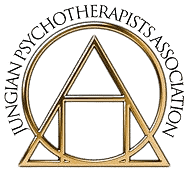About the Jungian Psychotherapists Association
HISTORY
The JPA is an organization started by a professionally diverse group of psychotherapists with a similar interest in Analytical Psychology. We wanted to create a more structured forum where professional (i.e., state licensed or certified) psychotherapists with training and experience in Analytical Psychology could, by pooling our resources, obtain professional education and training in a way that is not available through local educational organizations. We also wanted to create a forum in which we would feel supported by others who seek to deepen their experience and training in Jungian Analytical Psychology. The following are details taken from our Thirty Year Anniversary Celebration.
In the early 1990s, David Hufford invited a group of colleagues to discuss the possibility of forming an organization of Jungian-oriented therapists for training and collegial support. The original group coalesced into a Steering Committee of eight colleagues who formulated the origins of the Jungian Psychotherapists Association (JPA). The Steering Committee was composed of Kent Devine, Lucretia Devine, Gretchen Hageman, Marla Herbig, David Hufford, Gordon Keating, Carl Robinson, and Clarise Wirth. The Jungian Psychotherapists Association was launched in 1993.
The JPA was at the time a unique organization of Jungian-oriented therapists, all of whom (in 1993) had not sought analytic training. The JPA forms a midpoint on the Pacific Northwest Jungian community continuum that includes C. G. Jung Society, Seattle and, at present, two Seattle-based analytic organizations: C. G. Jung Institute of Seattle (CGJIS) and The New School for Analytic Psychology.
Original JPA Bylaws define the organization’s purpose as follows:
The Jungian Psychotherapists Association (“Association”) is a mutually supportive organization of psychotherapists actively engaged in the study and application of Analytical Psychology. The central purpose of the Association is to further the professional growth, development and education of its members.
To support this aim, the Association provides professional educational activities with a clinical focus, such as seminars, courses, consultation, and study groups. It also provides a forum for informal communication and support among its members. (Jungian Psychotherapists Association Bylaws, 1996)
The original design of the JPA was a “collective,” an active-member organization in which all members worked on a task group, for example, Bylaws; Membership; Program; Hospitality; Officers/Oversight; Public Event. All members, thus, contributed to the work and functioning of the organization.
In line with the original purpose of the Jungian Psychotherapists Association, JPA organized and offered clinical training events for members. Later in JPA history, we opened Clinical Workshops to non-member community clinicians, usually by invitation from JPA members. The annual JPA Ethics Workshop (originally 3 credit hours; currently 6 credit hours) is open to members only and was offered at no fee for a period of time. In 1995, early in the life of the organization, JPA members decided to offer an almost-annual community-wide event: A Seminar for Professionals. These seminars, informally referred to as Public Events, are open to all community members. Later (2011?), members decided to expand membership criterion, thus eliminating the stratified membership formula as well as eliminating requirements for personal Jungian analysis hours.
Excerpted from the JPA 30th Anniversary Celebration booklet written by Ann Blake, long time JPA member.
PROGRAMS
JPA offers several annual clinical events for its members, including spring and fall workshops, and yearly ethics training. The clinical events are generally led by Jungian analysts including case consultations the following morning.
Our annual ethics training is a noteworthy draw for practitioners. Analysts conducting these workshops cover not only the fundamentals of ethics, they also offer unique and dynamic ways of exploring the ethical dimensions of clinical work.
Benefits include workshops, consultations, and public events at a reduced fee to members as well as CEU’s at no additional cost. Past presentations by distinguished analysts include: Donald Kalsched, Ann Ulanov, Beverly Zabriski, Ph.D., Mario Jacoby, Ph.D., John Beebe, M.D., Thomas Kirsch, M.D., Michael Conforti, Ph.D., and Polly Young-Eisendrath, Ph.D.
